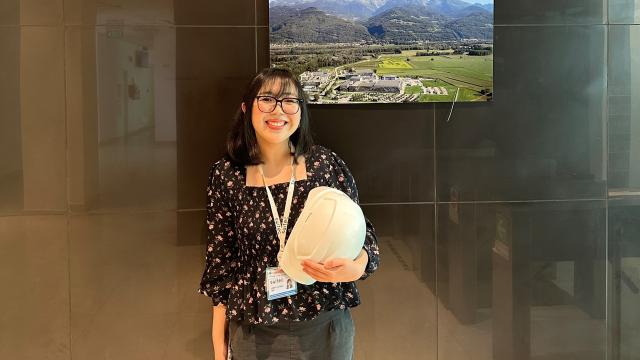On top of creating a safe space for SIT students to have conversations on mental health, Year 3 SITizen Kimberly Cheong and her mates on the Well-thy Minds project are contributing to efforts by the public sector to create helpful resources for youths.
“Mental health is a buzzword these days, but most of us don’t know what’s really going on,” Kimberly half-jested, referring to the deluge of self-help memes and quotable quotes that she and her peers see on social media every day.
But what exactly does mindfulness look like in practice? How can one be an empathetic friend? What are the stress management techniques that university students can immediately apply?
Through the Well-thy Minds service-learning project launched in December 2020, Kimberly and her team members are determined to help fellow SITizens (and the community at large) learn more about mental health in concrete ways. After all, as an Occupational Therapy student in the Health and Social Sciences cluster, Kimberly is cognisant of the importance of holistic wellness.
Using Art to Heal
Well-thy Minds’ very first event – Mind Meets Art (held in March last year) involved using art techniques to ground the mind. In the 1.5-hour session, an art therapist prompted participants to create images that evoked different feelings such as happiness, comfort and stress. What resulted was a useful exercise in mindfulness and the chance for students to temporarily unplug from the demands of school and life.

Participants created images that evoked different feelings for them. (Photo: Kimberly Cheong)
Owing to the event’s success, a second iteration was held in 2022, which taught participants how to express love for themselves through the five love languages. A third art event – Clayrity -- was also in the works. While Well-thy Minds is gaining traction and awareness on the within SIT, the long-term goal of the 13-member group is to create an impact within the wider community in Singapore.
Diving into Needs of Students
They didn’t have to wait long. Kimberly and the team had the opportunity to contribute to the mental well-being of youths in Singapore when the Ministry of Health’s Office for Healthcare Transformation (MOHT) reached out to SIT last year.
From June to August, Well-thy Minds held a series of five focus group discussions to find out common stressors among students and their feedback on Mindline , a government-created site that provides mental health resources for the general public. Findings from SIT and other institutes of higher learning (IHL) involved in this feedback would go towards the development of a version that is more youth-oriented.

Sussing out what information youths would find helpful for the youth-oriented version of Mindline.sg (Photo: Kimberly Cheong)
A major finding, Kimberly shared, was how seriously her peers were looking at their mental health. “They want to look for more information that is contextualised to their needs. They want to be more aware of how to care for others as well as caring for themselves,” the president of Well-thy Minds elaborated.
A most heartening highlight was how most participants were pleased to know about Well-thy Minds and expressed interest in student-led mental health events, an affirmation that the group has been on the right track.
Kimberly and the vice-president of the group are in the midst of collaborating with other local universities to create a forum to shed light on the mental health landscape in Singapore.
Walking the Talk
It isn’t lost on Kimberly that advocating for mental wellness also comes with its share of stresses. “Running a pilot project, we were eager to take on a lot, but we forget we are still students with deadlines to meet. Our schedule became very tight. We have had to manage that passion, or we’ll burn out,” she recalled.

Kimberly ( in jeans) and the pioneering team of Well-thy Minds
From left: Acacius Chng Kee Hean, Alex Wong Zhao Hong, Kiera See Ying, Kimberly Cheong Man Ning, Muhammad Sadiq Bin Emanan (Photo: Kimberly Cheong)
With no quick fix to release the mind’s struggles, Kimberly urges her peers to see mental wellness as a journey and to continue to take baby steps towards betterment, even after entering the workforce.
“It would be ironic that we are advocates for mental health, but we are not looking out for our own,” she said.
![[FA] SIT One SITizen Alumni Initiative_Web banner_1244px x 688px.jpg](/sites/default/files/2024-12/%5BFA%5D%20%20SIT%20One%20SITizen%20Alumni%20Initiative_Web%20banner_1244px%20x%20688px.jpg)


